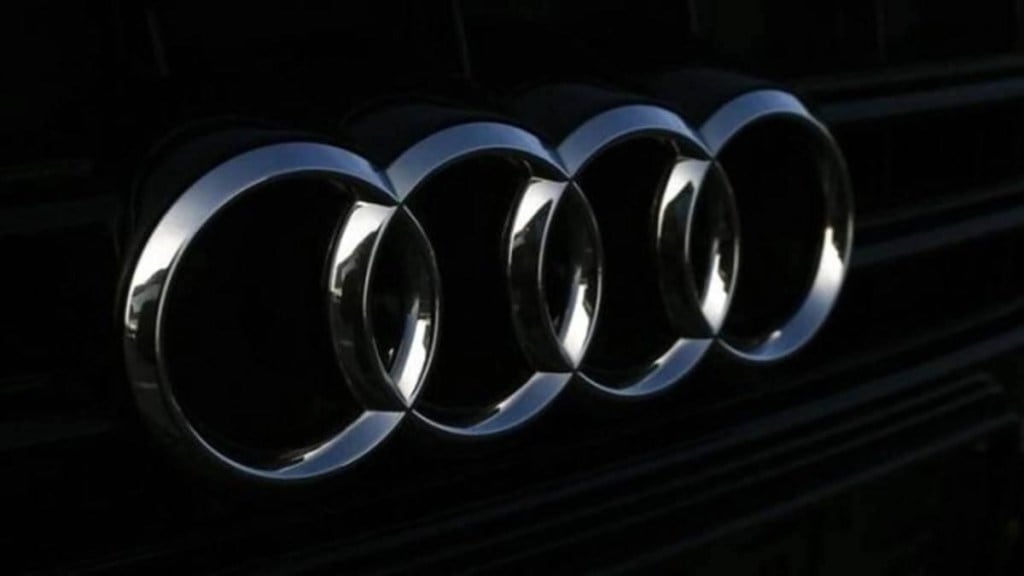German luxury carmaker Audi on Friday launched the Q8 e-tron electric car in two battery options – the Q8 50 e-tron with a 95 kWh battery and the Q8 55 e-tron with a 114 kWh battery. The latter is India’s largest capacity battery on an EV, surpassing 107.8 kWh of Mercedes-Benz EQS, launched last year, and 101.7 kWh of BMW i7, launched earlier this year.
The Q8 e-tron is also available in two body types – SUV and Sportback – making a total of four variants for customers to choose from. These are Q8 50 e-tron (Rs 1.13 crore), Q8 55 e-tron (Rs 1.26 crore), Q8 Sportback 50 e-tron (Rs 1.18 crore) and Q8 Sportback 55 e-tron (Rs 1.3 crore). Prices are ex-showroom.
While the 50 e-tron models have a claimed driving range of up to 505 km, the 55 models can go up to 600 km on single charge. Audi said the range is calculated using the European WLTP mode, and is very near to range in actual driving conditions. The EQS has a WLTP range of 677 km, while the i7 can go up to 625 km.
The next big target for Audi India is to have 50% of its sales coming from EVs by 2030.
According to industry sources, while the EV penetration in the overall passenger vehicle segment is a mere 1.2%, in the luxury segment it’s much higher, at 5%.
“Right now, about 5% cars sold in the luxury segment are EVs, but for us the penetration is 3%,” Balbir Singh Dhillon, head of Audi India, told FE. “From here, our aim is to reach 15% EV sales share by 2025-26, and hopefully touch about 50% by 2030.”
Audi’s global goal is to become an all-electric vehicle maker by 2033.
Dhillon added that the carmaker’s strategy of moving out of diesel is paying off. “On April 1, 2020, diesel had 80% sales share in the Indian luxury car market. Today, it has reduced to 40%. We are completely out of diesel and our strategy of petrol-plus-electric is paying off,” he said.
All luxury carmakers have at least one EV in their portfolio. These include BMW (iX, i7, i4 and MINI Electric), Volvo (XC40 Recharge and the soon-to-be-launched C40 Recharge), Mercedes-Benz (EQB, EQS and EQS AMG), Jaguar I-Pace and Porsche Taycan. Most are priced upwards of Rs 1 crore and together all these models have sold about 2,000 units, cumulatively.
Dhillon added that till now most luxury electric cars are second cars in the family. “People usually have a petrol/diesel car for outstation travel, and electric for city usage, because of limited driving range of EVs,” he said. “But with cars like the Q8 e-tron that have a long range to go from one city to another, we hope these will soon become the first and only car in a family.”
To minimise range anxiety, Audi India had recently launched ‘Charge my Audi’ app — a one-stop application for multiple charging stations. “It offers a convenient route planner, real-time charger status, start and stop charging, real time state-of-charge, and an all-in-one payment gateway,” Dhillon said.
“Charging station partners include Aargo EV Smart, Charge Zone, LionCharge, Relux Electric and Zeon Charging, and all put together offer more than 1,000 charging points. With the launch of the Q8 e-tron, we are offering free charging for our customers both via that app and at our dealerships (another 100 charging points) till the end of this year. This is in addition to one charger we install at the customer’s home or office when she buys the car from us.”
